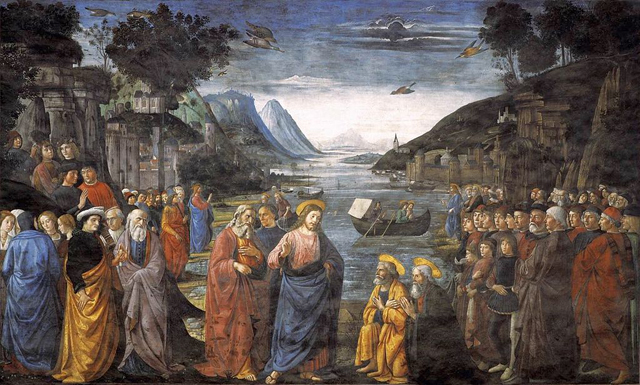The Wikicclesia Church: Open Source Religion
This week’s Alban Institute blog post is written by Landon Whitsitt.
He opens:
At some level, the notion of a “Wikipedia church” —or “Wikicclesia”— makes a lot of sense, even if we have never thought of it before.
Wikipedia: The encyclopedia that anyone can edit
Wikicclesia: The church that anyone can edit
He poses some good questions to the Church. How do we leave the comfort zone that has protected us for a thousand years? How do we enter the modern world that simply does not value the things that have so defined Church?
This does not mean that the tenets of the faith are no longer valued. This is more about the structure that has grown around our beliefs—that the “keepers” of the faith need to be somehow “certified,” and all capable people without this accreditation need to exist in subservience.
The system played an important role in a world where education was not widespread. There was always a temptation to follow religious “snake oil” salespeople.
We could argue that this is always the case—always a danger. Today, snake oil salespeople (even religious ones) are more easily exposed.
This is exactly the idea that Wikipedia, the online encyclopedia, builds on.
Predecessor encyclopedias spent a fortune finding experts to annually update topics they defined. Consumers spent fortunes making sure these valuable fonts of information were in their homes.
Wikipedia invited anyone to pose as an expert on any topic that interested them and let everyone else edit their work. They made the information available to all. For FREE!
The result has been a surprisingly accurate and amazingly timely source of information.
People take their areas of expertise seriously. They don’t want bad information out there.
Let’s assume people also take their faith seriously.
Can the church trust this “open source” culture?
The Church may have no choice.
Our new age of empowerment is exposing the flaws of the Church that have long been hidden by the cosmetics of tradition. A lot that defines church is no longer needed.
- The expenses of maintaining it are crippling.
- It is increasingly less effective.
- We are finding better ways.
Redeemer has unwittingly been an experimenter in the Wikicclesia concept. We set out with no other motive than to be the best Christian community we could, using the resources we have, while under attack from the very church that chartered to nurture us.
We learned that the way we traditionally “do church” is very limiting. In fact, it is turning off the modern faithful who find more fulfilling ways to live their faith.
As we used the internet, doors opened for us. Small as we are, we found we are able to make a huge difference.
The old way of doing “church” is all about pleasing others, doing things approved ways, showing team spirit, supporting the system that provides clergy and publishes hymnals and curricula—and works hard to maintain. Nothing wrong with any of this. It is just reaching the end of its viability.
Many churches today will never be able to be effective as Christian community “the old way.” That doesn’t mean they cannot be active in mission and serve Christ and be viable in the modern world.
The ways of measuring Church must change.
The challenge to the Church is to find ways to grow in the 21st century, not to find fleeting ways to sustain the Church of the 20th century. We will never return to that time. That doesn’t mean there are not halcyon days awaiting.
Our experience may point the way to the new Wikicclesia.
Presenting Redeemer’s 2013 Annual Report
We present our 2013 Annual Report, which is only a glimpse of our very active ministry.
Read it and you will see that while banned from Church membership and structure, faith filled the void in exciting ways.


St. John the Evangelist Anglican Church in Eastern Montgomery County, Pennsylvania, has been blessed to not own a building for over 10 years. We have just re-located to Abington, Pennsylvania, after losing our lease suddenly in October. God is training us to be nimble and adaptable and we are so excited about the ministry and outreach opportunities at our new location! Get to know us at http://www.toknowchrist.org